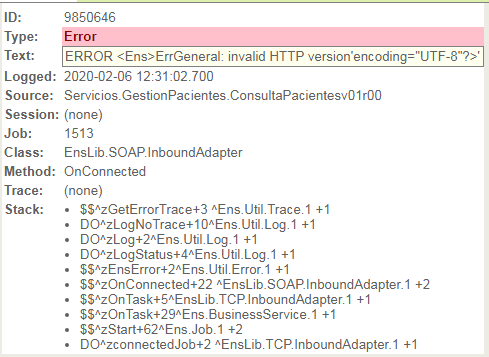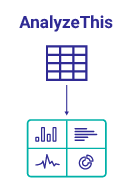Hello,
We would like help to know why our web service which gets Patient's ID number, does not accept messages?
We observe its Event Log, and it contains the following pattern:
We detail each log to give info to discover what's happening:
First there is a new connection:
Then it suddenly disconnects
After that it looks like the service restarts:

The next one is interesting: it outputs that UTF-8 encoding is invalid, inside EnsLib.SOAP.InboundAdapter

We have searched for UTF-8 inside SOAP.



